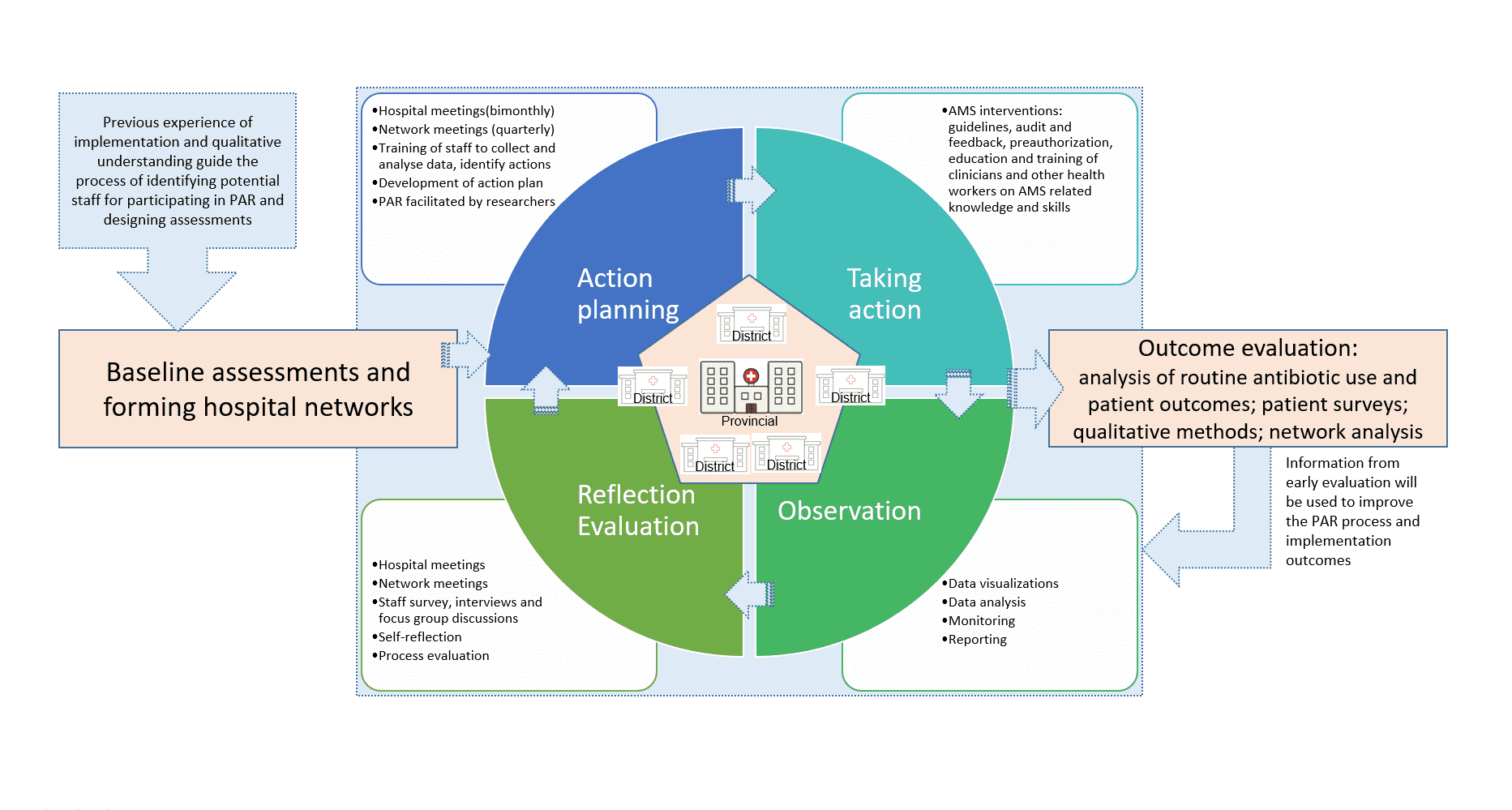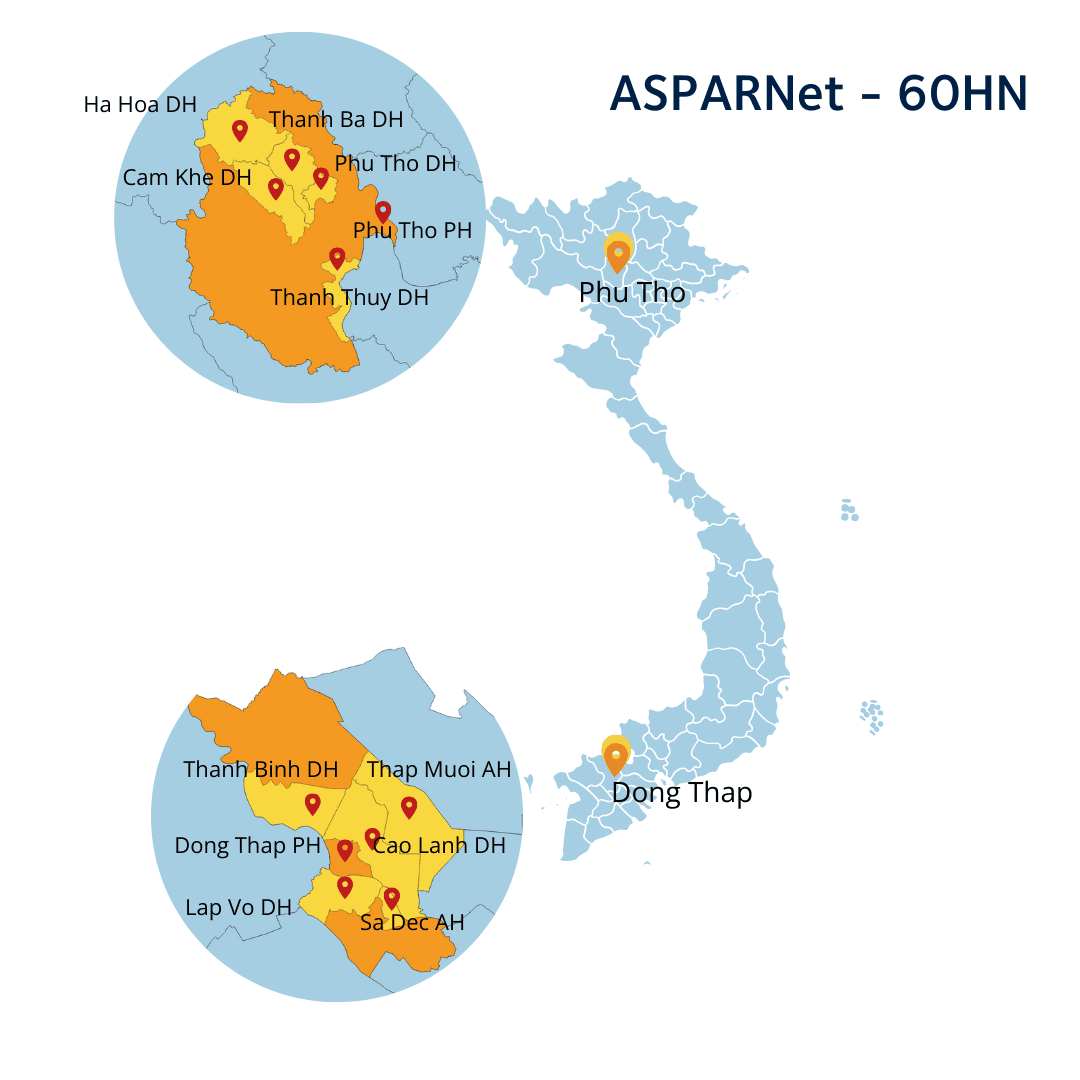Location of activity
Two provinces in Vietnam (Phu Tho and Dong Thap)
Funder
UKRI Medical Research Council, UK
Partners
National Hospital Tropical Disease
Deparment of Health Dong Thap
Department of Health Phu Tho
Despite being a key component of global and national plans to control antimicrobial resistance (AMR), antimicrobial stewardship (AMS) implementation faces significant challenges in low- and middle-income countries (LMIC). There is a need for more research evidence on the impact of AMS implementation strategies and outcomes in LMICs like Vietnam. Based on our experience and observation from previous implementation studies, AMS interventions at the provincial level in Vietnam is feasible but hindered by a lack of operational skills and commitment, while district-level implementation is more challenging due to limited resources and staff capacity.
In this study, we will evaluate the impact of the overall AMS implementation strategy that integrates network involvement and participatory action research (PAR) (figure) processes to identify, apply and evaluate hospital-specific interventions, recognizing the diversity and context of interventions in each of the hospitals. Through the PAR process, this project will improve partnerships within and between hospitals in these networks, strengthen the capacity of local hospitals, and build their ownership of implementation which is necessary for long-term sustainability of AMS activities specifically and AMR control in general.
Hospital staff will be involved in the research process with the researchers to assess and identify gaps for improvement, and plan for actions to change and evaluate the impact of the interventions at their hospitals. Participating in local AMS networks will provide staff from district hospitals with opportunities to have regular exchanges of experience and access to resources and guidance from provincial hospitals. This implementation approach promotes the continuity of care in the referral of patients between care levels on management of infections.

This study aims to evaluate the impact of AMS implementation through local hospital networks and participatory action research approach on co-primary outcome measures of both antibiotic use and clinical outcomes and investigate the potential impact on microbiological outcomes in patients.
By the end of quarter III 2024, our research team successfully obtained required approvals for study implementation and held introductory meetings with the hospital leadership and representatives from both provincial and district hospitals in two provinces. We introduced the research project and confirmed the participants for the AMS implementation network (Figure 2). Data collection will start with a baseline phase to collect information and indicators needed to feed into the process of planning and participatory action research by hospital research teams.
